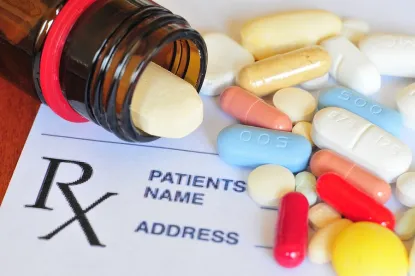As we previously blogged about in mid-2016, Food and Drug Administration officials have been exploring and pushing for the creation of a new user fee program to support its regulatory activities related to over-the-counter (OTC, also known as nonprescription) drug products. In June of 2016, the Agency held a public meeting to solicit stakeholder feedback on its ideas. Since that time the proposal to develop an OTC Monograph User Fee Program has matured and it is generating considerable steam. However, FDA cannot implement such a program to assess user fees against members of private industry unless and until it has statutory authorization from Congress to do so.
As the Agency explains it, “A user fee program for nonprescription monograph drugs would be a potential funding mechanism to supplement congressional non user-fee appropriations, and would support timely and efficient FDA review of the efficacy and safety of ingredients included in or proposed for inclusion in a monograph.” General partisan gridlock in D.C. notwithstanding, it appears likely that Congress may enact the legislation necessary to create this new User Fee Program during its current session (2017-18). This post updates legislative and FDA activities in this area since our introductory discussion in 2016.
-
FDA has held a series of additional meetings with OTC drug industry and other stakeholders since it began this effort in earnest in mid-2016. The most recent FDA/Stakeholder meeting was held in April 2017. Interested readers can review minutes from all of those meetings on the Agency’s website here.
-
Based in part on the negotiations it engaged in with industry, in July 2017 FDA released a document that lays out the procedures and performance goals for the potential OTC Monograph User Fee Program. In line with congressional authorizations for existing user fee programs administered by the FDA, the proposed OTC user fee program would need to be reauthorized every 5 years. And although Congress has missed the boat for the OTC Monograph User Fee authorization to launch in FY2018 (which began on October 1, 2017), it would be simple enough for FDA to shift those original annual performance goals accordingly if or when the Program is officially authorized. You can review the Agency’s FY2018-FY2022 performance goals document here.
-
FDA updated the public on the status of its development efforts during an August 23, 2017 webinar.
-
On September 13, 2017, the Health Subcommittee of the House Energy & Commerce (E&C) Committee held a hearing on OTC monograph reform, which included as one of its witnesses Dr. Janet Woodcock, the director of FDA’s Center for Drug Evaluation and Research. Dr. Woodcock opened her comments with a brief explanation of why reforms are badly needed:
“When it was first created over 40 years ago, the monograph system was relatively efficient, permitting timely monograph development to address safety and effectiveness issues. As product innovation unfolded, however, the monograph system has not kept up, leaving a system that does not well-serve consumers or industry. FDA still has not been able to complete many monographs begun decades ago. Nor has it been able to make timely monograph modifications to account for evolving science and emerging safety issues, or to accommodate product innovation or marketing changes. Approximately one third of the monographs are not yet final, and several hundred individual ingredients (monographs can include multiple ingredients) do not have a final determination of safety and effectiveness.”
Although OTC Monograph User Fee legislation has not yet been formally introduced in Congress, at least 2 discussion drafts have been drafted in a bipartisan fashion and are floating around Capitol Hill. The first emerged from the Senate earlier this year and is sponsored by Senators Johnny Isakson (R-GA) and Bob Casey (D-PA), who are both members of the Senate Health Committee. The second discussion draft, called the ‘‘Over-the-Counter Monograph Safety, Innovation, and Reform Act of 2017,’’ was released on September 11, 2017 by House lawmakers in advance of the September 13th hearing. It is sponsored by E&C Health Subcommittee Chair Rep. Michael Burgess (R-TX), ranking Democrat Rep. Gene Green (TX), Subcommittee members Reps. Brett Guthrie (R-KY) and Diana DeGette (D-CO), and Reps. Bob Latta (R-OH) and Debbie Dingell (D-MI).
Discussions during the September House hearing also raised the possibility of a 2-year period of exclusivity for manufacturers who develop the data necessary to support a new OTC monograph proposal. Dr. Woodcock emphasized that exclusivity is a policy issue for Congress to resolve; other witnesses pointed out that there is a dearth of innovation in the OTC drug marketplace due to the high costs and limited rewards associated with developing a new ingredient. At least one member of the Subcommittee noted that consumers should not be asked to shoulder the burden of more expensive OTC products if companies invest more in new research and development as a result of incentives put in place by any final OTC Monograph User Fee legislation.
We will continue to keep readers up-to-date on important developments in this area.




 />i
/>i

